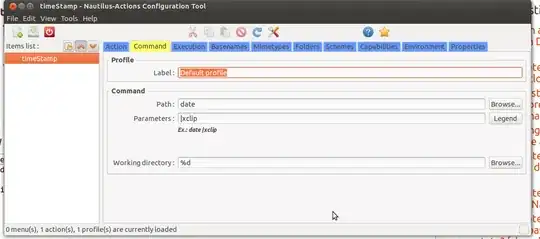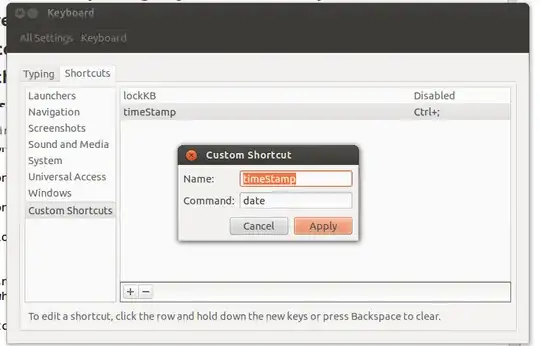While editing text documents I need to put time stamps frequently. I thought of automating it in 2 different ways. None of these seem to be working.
- Using nautilus-actions
I set up a new right-context action which runs the command date|xclip

This right-context doesn't show up when I right click in other applications (such as terminal, or browser). Moreover when it appears, and I click on it, it doesn't do anything.
- Using keyboard shortcut
I setup a new keyboard shortcut which is supposed to execute date command but doesn't.

Any pointers?
Thanks.